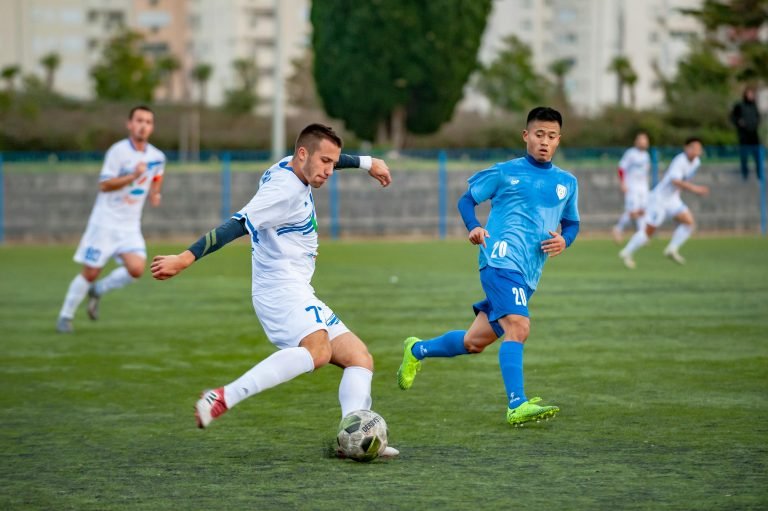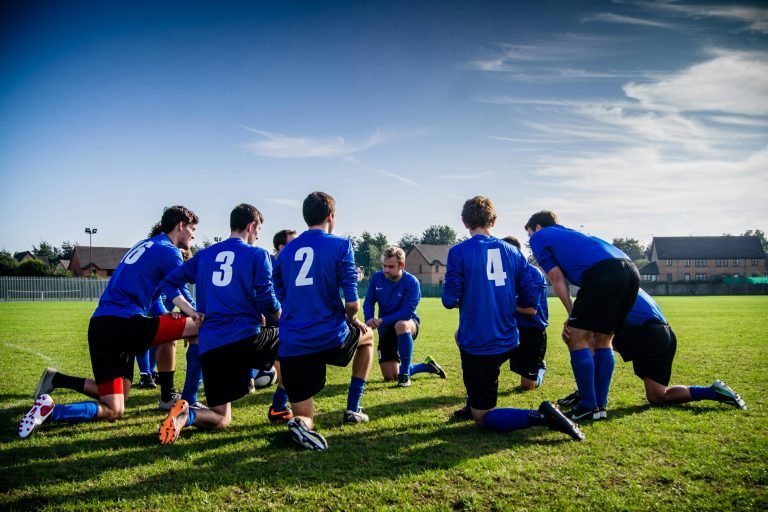physical ability alone is often not enough to achieve peak performance. Mental toughness, the ability to maintain focus, composure, and resilience under pressure, plays an equally crucial role in an athlete’s success. Whether it’s enduring the grueling moments of a marathon, keeping calm during the final moments of a close game, or bouncing back from a setback, mental toughness is often the difference between those who succeed and those who falter.
In this article, we’ll explore what mental toughness is, why it’s vital for athletes, and practical strategies to train the mind for peak performance.
What is Mental Toughness?
Mental toughness is a psychological quality that enables an individual to cope with difficult situations, remain resilient in the face of adversity, and maintain high levels of performance under pressure. It encompasses several key traits, including:
- Resilience: The ability to bounce back from setbacks, injuries, or mistakes.
- Focus: The capacity to maintain concentration on the task at hand, blocking out distractions and remaining present in the moment.
- Confidence: A belief in one’s abilities, even when things aren’t going well.
- Control: The ability to manage emotions, stay calm under pressure, and not be swayed by external circumstances.
- Persistence: The drive to keep going, even when facing challenges or fatigue.
Mental toughness is not something athletes are born with—it is developed over time through consistent practice, self-awareness, and mental conditioning. By strengthening the mind, athletes can improve their ability to push through discomfort, manage stress, and perform at their highest level when it counts most.

The Importance of Mental Toughness in Sports
The physical demands of most sports are well understood, but the mental challenges athletes face are often just as taxing. Mental toughness is particularly critical for:
- Overcoming Adversity: Sports inevitably involve failure—whether it’s a missed opportunity, a defeat, or an injury. Athletes with mental toughness view setbacks as learning opportunities rather than insurmountable obstacles. They are able to recover quickly, reframe the situation, and approach future challenges with renewed determination.
- Performing Under Pressure: High-stakes situations, like a penalty shot in soccer or a game-winning serve in tennis, can trigger intense pressure. Athletes who are mentally tough are better equipped to stay calm and make optimal decisions when the pressure is on. Their focus remains sharp, and they can trust their preparation, even in the face of anxiety.
- Maintaining Consistency: Inconsistent performance is often a result of wavering mental focus and fluctuating confidence. Mental toughness helps athletes perform at a high level, day in and day out, regardless of external factors such as the weather, the opponent, or personal challenges. It allows athletes to maintain their effort even during off days, ensuring more consistent results over time.
- Achieving Long-Term Success: The path to success in sports is rarely linear. There are highs and lows, breakthroughs and setbacks. Athletes who develop mental toughness are more likely to achieve long-term success because they are able to push through the inevitable challenges that come their way, and they don’t give up when progress is slow.
Key Components of Mental Toughness
Mental toughness is not a single trait but a collection of skills that athletes can develop and refine. Below are the key components that contribute to an athlete’s mental toughness:
1. Self-Belief and Confidence
Confidence is essential for peak performance. Athletes who believe in their ability to succeed are more likely to push themselves through difficult situations. Self-doubt can be crippling, especially in critical moments. Building self-confidence comes from positive reinforcement, visualization, and previous successes. Athletes can cultivate this confidence by focusing on their strengths, reflecting on past achievements, and adopting a growth mindset.
2. Focus and Concentration
Mental toughness involves the ability to stay focused on the task at hand. Athletes must learn to block out distractions, whether they come from the environment, the opponent, or their own negative thoughts. Focus allows athletes to stay in the moment and perform without being overwhelmed by external or internal distractions. Techniques such as mindfulness, meditation, or even simple breathing exercises can improve concentration, enabling athletes to direct their energy toward the performance at hand.
3. Emotional Control
The ability to regulate emotions, particularly under stress, is crucial for mental toughness. Athletes often experience frustration, anxiety, anger, or fear, but how they manage these emotions directly impacts their performance. Those who are mentally tough don’t let emotions dictate their behavior. They acknowledge their feelings but don’t let them control their actions. By practicing emotional regulation techniques, athletes can remain calm and focused, regardless of the emotional intensity of the moment.
4. Resilience and Adaptability
The ability to recover from failure and adapt to new challenges is central to mental toughness. Resilient athletes don’t see failure as a personal flaw but as an opportunity for growth. When things don’t go as planned—whether it’s missing a goal, losing a match, or experiencing an injury—mentally tough athletes bounce back quickly. They assess what went wrong, learn from it, and adjust their strategies for the future. Adaptability, the ability to pivot and adjust to new circumstances, ensures that athletes can stay effective in changing situations.
5. Persistence and Work Ethic
Finally, persistence is a key aspect of mental toughness. Athletes who are mentally tough are driven by the long-term goal, even when the process is difficult or repetitive. They know that improvement and success come with sustained effort. The ability to push through discomfort, keep going after setbacks, and remain committed to their training and goals is what separates elite athletes from the rest.
Practical Strategies for Developing Mental Toughness
Developing mental toughness is a gradual process, but there are several practical techniques athletes can use to enhance their psychological resilience and performance:
1. Visualization
Visualization is a powerful tool for developing mental toughness. By mentally rehearsing successful performance and imagining overcoming challenges, athletes can prepare their minds for real-life situations. Visualization helps build confidence, increase focus, and reduce anxiety by training the brain to respond to pressure situations. Athletes should visualize not only their success but also how they will overcome setbacks and challenges, reinforcing their resilience.
2. Positive Self-Talk
The way athletes talk to themselves can have a profound impact on their performance. Negative self-talk, such as doubting one’s abilities or worrying about failure, can undermine mental toughness. On the other hand, positive self-talk—phrases like “I can do this,” or “I’ve prepared for this moment”—can boost confidence and maintain focus. Reframing negative thoughts into constructive, motivating language helps athletes stay confident and calm under pressure.
3. Mindfulness and Meditation
Mindfulness practices can improve focus, reduce stress, and promote emotional regulation. Through mindfulness, athletes become more aware of their thoughts, feelings, and physical sensations, which enables them to better control their reactions. Meditation helps athletes calm their minds, center themselves, and clear away distractions. A few minutes of mindfulness before a game or competition can help athletes stay calm and focused.
4. Goal Setting
Setting clear, measurable, and achievable goals is crucial for building mental toughness. Goals provide athletes with a sense of purpose, direction, and motivation. Athletes should break down larger goals into smaller, manageable steps and focus on achieving one milestone at a time. This keeps them motivated and reinforces their persistence, as they see progress toward their overall objective.
5. Embracing Challenges
Mental toughness grows through exposure to challenges. Athletes should seek out situations that push them outside of their comfort zones, whether it’s competing in tougher competitions, increasing training intensity, or overcoming fear. Embracing discomfort and using challenges as learning opportunities helps athletes grow mentally and emotionally stronger over time.
6. Relaxation Techniques
Relaxation exercises, such as deep breathing, progressive muscle relaxation, and guided imagery, can help athletes reduce anxiety and stay calm under pressure. By learning to relax their body and mind before and during competition, athletes can manage stress and maintain focus.
Mental toughness is essential for athletes who want to perform at their peak, especially when faced with adversity, high-pressure situations, and challenges. It involves a combination of self-belief, focus, emotional control, resilience, and persistence. Just like physical strength, mental toughness can be developed and refined with consistent effort and practice. By adopting strategies such as visualization, positive self-talk, mindfulness, goal setting, and relaxation techniques, athletes can train their minds to stay calm, confident, and effective, even in the most challenging moments. Developing mental toughness not only improves athletic performance but also prepares athletes for success in all areas of life.


